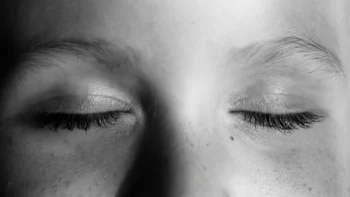If you have ever noticed something in your eye that looks like little floating spots or squiggles, you are not alone. Known as eye floaters, these small spots are common and typically not harmful.
Still, you may be concerned about these small floaters or worried about whether they will prevent you from having vision procedures such as LASIK. Here is what you need to know about eye floaters management, eye floaters and LASIK, and other related concerns — right from a Las Vegas eye doctor.
What Are Eye Floaters?
According to WebMD, eye floaters look like small spots that move through your visual field. They are usually more obvious when you look at something that is light or bright, such as the sky or a white piece of paper. They generally do not affect your vision unless they are very large, but you could find them annoying at times.
The vast majority of floaters will not cause you any problems, and they are not indicative of any kind of health concern or medical condition. However, there can be times when you should see your doctor about eye floaters. For example, if they come on suddenly after experiencing trauma to your eye, or if you notice a significant increase in them that does not go away, getting a checkup can be a good idea.
What Is LASIK Eye Surgery?
LASIK eye surgery has become an increasingly popular surgical option for vision correction. It can be a rewarding surgery, but it also comes with some minor risks. By working with a Las Vegas eye doctor you can get the information you need to decide if it’s the best option for you.
The FDA addresses the use of LASIK (short for laser-assisted in situ keratomileuses) to aid in vision correction for people who are nearsighted. This means that they can see close-up objects very well, but objects that are further away will appear blurry. If you suffer from nearsightedness it can impede your ability to do things like see the whiteboard in a classroom, drive a car, or even safely navigate while walking.
In LASIK, the surface of the cornea is reshaped through the use of a laser. By creating a shape that properly refracts light, your vision can be made sharper and clearer. The effects of this procedure are long-lasting and most people do not require any additional “touch-up” procedures to see clearly. The surgery can lead to a few months of dry eye and, in rare conditions, a decrease in vision, but there are typically few — if any — side effects. LASIK is among the best ways to eliminate the need for glasses or contact lenses on a long-term basis.
What Causes Eye Floaters?
Eye floaters are usually created from small pieces of collagen and are part of the vitreous of your eye. This gel-like substance is located in the back of your eye. As you age, the fibers in the vitreous will shrink and clump together in spots. Those little clumps cast shadows on the retina, which is what causes you to see them as floaters. When the vitreous pulls away from the retina you may also see a small flash.
Typically, most people start seeing floaters between the ages of 50 and 75, but that is not the case for everyone. Some people have floaters from a very young age, which is more common in those who are nearsighted. If you have had cataract surgery, you may also be more likely to experience floaters.
What Are the Symptoms of Eye Floaters?
If you try to focus on an eye floater it often “runs away” from you to another part of your visual field. Over time you will probably notice them less, but they may still appear every now and then. Most commonly, eye floaters will look like:
- Squiggles
- Cobwebs
- Threads
- Strands
- Dots
They are generally nothing to worry about. However, if you start seeing a bit of an increase in them, or if they appear after trauma to your eye, it is a good idea for you to book an appointment with a Las Vegas eye doctor. A check-up can help bring you peace of mind and also address any eye problems before they become more significant.
Do Eye Floaters Affect LASIK Surgery?
Eye floaters and LASIK are not related. If you experience floaters and want to have LASIK surgery, there is no reason why the presence of floaters should stop you. Some people worry that there is something wrong with their eyes, or that the eye floaters will get in the way of the changes that LASIK will be making to the shape of their cornea. You can put those fears and concerns to rest. If you are otherwise a good candidate for LASIK, floaters will not affect that.
Is LASIK a Treatment for Eye Floaters?
LASIK is not an eye floaters treatment option. In fact, there are very few treatments for floaters because they almost never need treatment. If you are one of the rare people who has enough eye floaters to compromise your vision, a surgery called a vitrectomy can help. This requires the vitreous in the back of your eye to be removed and then replaced with a salt solution. Cataracts, torn retinas, and detached retinas can occur as complications with this surgery.
Learn More About Eye Floaters and LASIK
The most important thing to remember about eye floaters and LASIK is that they are not related to one another. LASIK will not cure your floaters, but your floaters will not stop you from getting LASIK either. When you talk to your Las Vegas eye doctor about your vision concerns, make sure to discuss any worries you have about the health of your eyes. That way you can get the proper guidance and the right information to help you see clearly.





